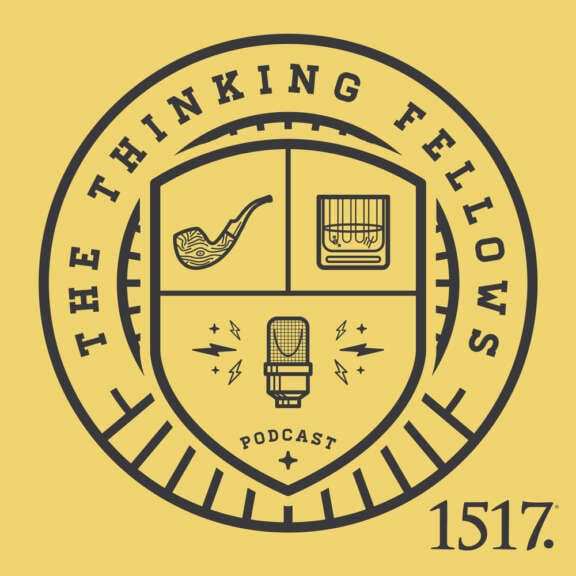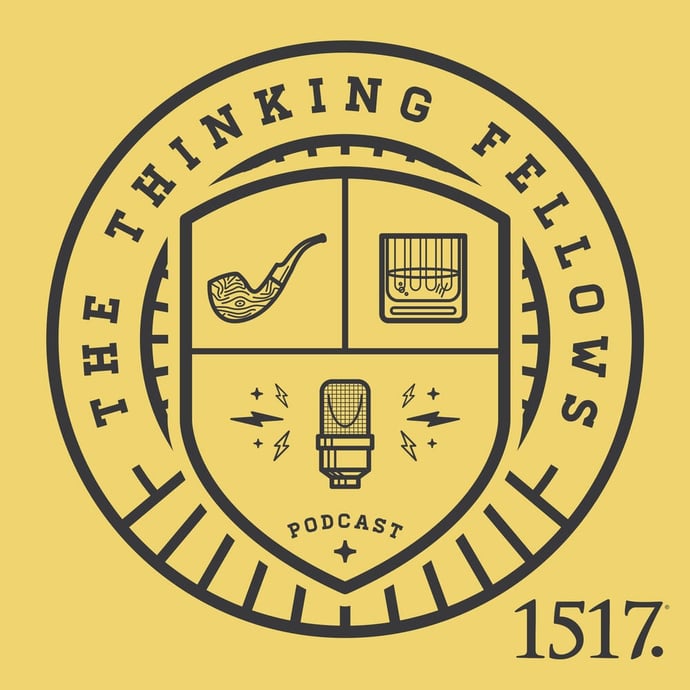Now... okay, so, angels as people, tell me about that. Walk me through it. Gillespie and Riley touch down on Origen's commentary on John's Gospel this week. They discuss martyrology, whether angels come disguised as people, and why it's important to let Scripture interpret Scripture.
Podcasts
Each 1517 Podcast is dedicated to delivering Christ-centered content through weekly, monthly, and seasonal audio platforms. Listen online or on your favorite podcasting app.
Author
- All Authors
- Aaron Zimmerman
- Adam Francisco
- Amy Mantravadi
- Blake Flattley
- Bob Hiller
- Bradley Gray
- Brian W. Thomas
- Bror Erickson
- Bruce Hillman
- Caleb Keith
- Chad Bird
- Chris Rosebrough
- Christopher Gillespie
- Cindy Koch
- Craig Donofrio
- Dan van Voorhis
- Daniel Deen
- Daniel Emery Price
- Darrin Sheek
- David Andersen
- David Rufner
- David Zahl
- Debi Winrich
- Delwyn Campbell
- Donavon Riley
- Doug Klembara
- Edward Killian
- Elyse Fitzpatrick
- Erick Sorensen
- Flame
- Grant Klembara
- Gretchen Ronnevik
- Haroldo Camacho
- Jacob Smith
- Jared C. Wilson
- Jeff Mallinson
- Jeffrey Pulse
- Jessica Thompson
- Jim Nestingen
- Joel Fitzpatrick
- Joel Hess
- John Andrew Schreiner
- John Bombaro
- John T. Pless
- John W. Hoyum
- John Warwick Montgomery
- Katie Koplin
- Kelsi Klembara
- Ken Sundet Jones
- Magnus Persson
- Matt Popovits
- Michael Berg
- Michael Horton
- Nick Lannon
- Paul Koch
- Peter Nafzger
- Philip Bartelt
- Raleigh Sadler
- RJ Grunewald
- Robert Kolb
- Rod Rosenbladt
- Ron Hodel
- Sam Leanza Ortiz
- Sarah Condon
- Sarah Crowder
- Scott Davis
- Scott Keith
- Steven Paulson
- Tanner Olson
- Troy Neujahr
- Uwe Siemon-Netto
- Wade Johnston
- William Cwirla
-
After speaking together at a Christ Hold Fast city event, Dr. Keith invited Bruce Hilman to join him on two episodes of the Thinking Fellows.
-
I feel the need… the need for the mercy of our Lord Jesus Christ! In this episode, Gillespie and Riley jump back into another letter from John Hus. This week, they discuss Hus’ letter to the people of Prague, urging them not to give up hope in the midst of persecution.
-
On this episode, Caleb Keith interviews Haroldo Camacho about his new translation of Luther's Commentary on The Epistle to the Galatians.
-
No, boys. There's two "O"s in Goose. In this episode, Gillespie and Riley dive into another letter from John Hus. This week, they take a critical look at Hus and discuss the influence of traditional Roman doctrine on Hus’ calls for reform.
-
With this collar on, my superpower is just unbridled preaching! Pastors Gillespie and Riley read a letter from John Huss to John Barbatus about the biblical teaching on who can (and cannot) preach.
-
Wait, no, stop! Riley and Gillespie wrap up their conversation about Robert Capon's "The Astonished Heart" No really, this is it.
-
This episode of the Thinking Fellows is about defining terms. Often, the fellows describe movements, doctrine, and even people as orthodox, historical, and reformational.
-
Wait, no, stop! Riley and Gillespie wrap up their conversation about Robert Capon's "The Astonished Heart" kind of... sort of... or maybe not.
-
Due to a listener request, Caleb and Dr. Keith dive into the Theology of the Cross via Forde's On Being a Theologian of the Cross.
-
We're not going to walk this one off. Riley and Gillespie continue their theological adventure through Robert Capon's "The Astonished Heart." This week, they examine the corporate model of the church, then get transparent critiquing themselves in relation to the church as an institution.
-
The Fellows approach the latest set of listener questions. This time, we have questions about Lutheran history, baptism, and apostasy.



